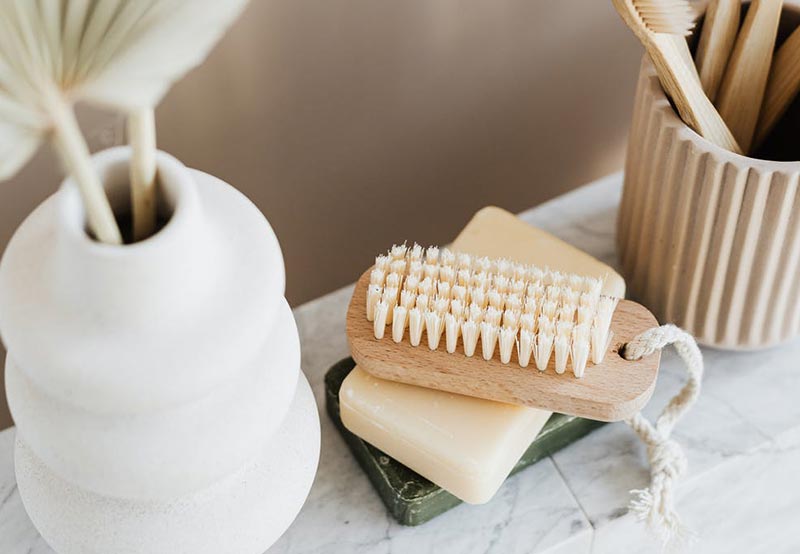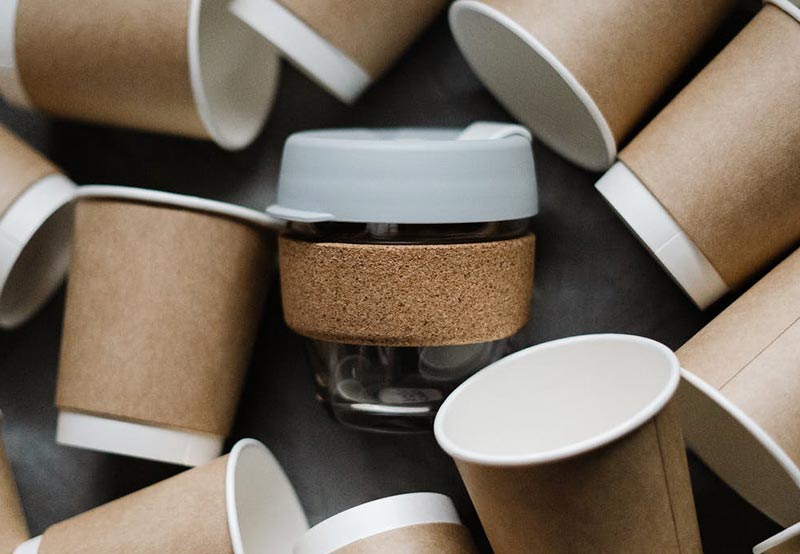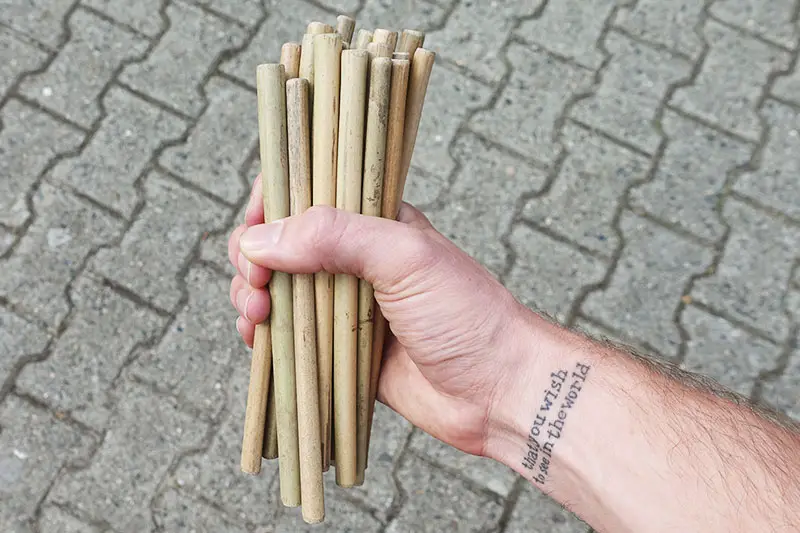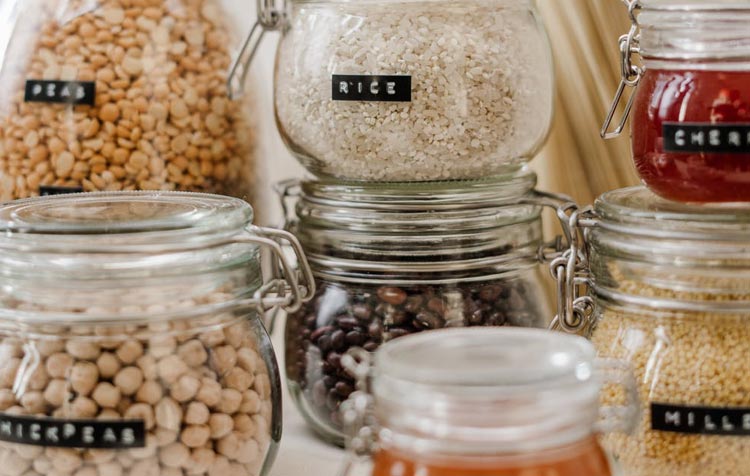You are looking for typical misconceptions, myths and prejudices about the Zero Waste Lifestyle and conscious waste avoidance? Then you've come to the right place! If you set your sails differently, you'll also have to deal with the headwind - and it blows around your ears in the form of quickly spoken prejudices. Especially if you consciously set your mind to it, live plastic free and constantly reduce your trash in the garbage can.
Here I would like to prepare you for some of the common prejudices and show you how you can directly refute them - in the sense of the whole movement.
5 Zero Waste Prejudices, Myths and Misconceptions
I have been paying attention to waste avoidance for several years now - both privately and in my job as a blogger. And even if they have decreased somewhat over time - the usual sayings and counter-arguments were always there. Basically, I advise you to be aware of why Zero Waste is such a great movement. No more trash in the environment, no more animals dying from it, lower disposal costs, hardly any trash to lug around, less contact with pollutants, no more unpleasant odors from trash. The list goes on and on.
If the goal of the movement is clear to you, you can safely head for it. If you have the right arguments at hand, you can take others along with you on your journey. Here, as promised, you'll find some of the common Zero Waste prejudices and answers to directly debunk them. Have fun!
1. "Zero Waste is too expensive."

You can quickly get that impression, it's true. But even if plastic-free items, for example from the unpacked store, are initially a bit more expensive, this does not apply to the entire lifestyle. Because those who live plastic-free basically live more consciously and consume significantly less. Almost a bit minimalist. You may spend a little more money on healthy and plastic-free packaged food - but you buy less superfluous and save your wallet in the process.
Last but not least, by spending long reusable things and replace expensive disposable products. For example, it is cheaper to buy a cloth bag just once than to keep spending money on a new plastic bag. On top of that, the disposal costs from your household are also reduced. The bottom line is that, in my personal experience, living plastic-free is actually cheaper.
2. "We Germans are recycling world champions after all!"
Unfortunately, this is a real recycling lie. Of the 5.2 million tons of plastic waste generated in Germany in 2017, only 810,000 tons were recycled. This corresponds to a recycling rate of only 15.6 percent.₁ This means we are neither world nor European champions in recycling. Just take a closer look at how and, above all, when this recycling rate is collected - namely, directly after waste sorting. Uncontrolled waste exports and losses during the recycling process are not even taken into account.
In addition, the Plastic waste that we export abroad, is also considered recycled. In 2015, for example, 13.65 percent was shipped to countries such as Malaysia, China or India.₂ Countries that themselves have a problem with waste generation. And whether the waste is really recycled there is difficult to monitor. Therefore, we should consciously avoid garbage and rather dispose of our produced garbage ourselves. Or do you always take your garbage over to the neighbor? Don't be irritated by the reputation of being the recycling world champion - because we are boasting about it unjustly.
3. "You can't live plastic-free, you can't do that today."

Oh yes, I have that impression too - because simply a lot of our everyday life consists of plastic. But this impression is deceptive and should therefore not be used as an excuse for not paying any more attention to waste avoidance. The terms "plastic-free" and "zero waste" sound, admittedly, as if you will have nothing to do with plastic from now on. But in fact, it is a long-term goal that you can work your way towards step by step.
If that's not a zero waste prejudice - what's the best way to start? First you replace plastic straws with reusable glass straws, for example, and some time later you replace the plastic bag you regularly buy with a reusable jute bag. In this way, you slowly but deliberately evolve and gradually reduce the plastic in your everyday life. Nobody has to live plastic-free - but it would be fatal to simply leave everything as it is, knowing that your own behavior harms the environment, animals and ultimately us humans.
4. "I don't pick up trash that others have made."
What exactly is the problem? You're smarter than the average person and know what consequences a sturdy six-pack ring of beer cans or a plastic bottle that lasts forever can have in nature. Animals, such as sea birds, eat it or strangle themselves with it.
So why not be smarter than the person who created the waste? Just take the trash to the nearest garbage can! That will give you some Contribute karma pointsbecause it saves animals' lives and because it inspires other people, or at least makes them think about the reasons you're doing it. On top of that, the place you're in looks a lot better after the cleanup than it did before. That alone is a pretty cool feeling.
5. "That one plastic straw doesn't make any difference."

How long do you use a disposable plastic straw? My guess is about 15 to 30 minutes - after that, it's just trash. Now imagine if every one of the nearly eight billion people on earth thought that way and continued to regularly sip through plastic straws. Then we'd have a real environmental problem from disposable drinking straws alone.
Fortunately, more and more people are rethinking, do without a drinking straw or replace it with reusable bamboo, glass or stainless steel straws. This makes drinking just as easy. But this behavior also protects the environment, because you are replacing a disposable product with a reusable one. And anyone who has seen a turtle almost die from eating a plastic straw would no longer say that the ONE plastic straw more or less makes no difference.
So this is one of many, typical Zero Waste prejudices.
More misconceptions and prejudices about plastic-free living?
Here you have now learned about five typical prejudices against conscious waste avoidance in everyday life. But the list of these misconceptions is far from over and can basically be continued indefinitely. Because if you want to change something, you always have to be prepared for some headwind. The important thing is to remain steadfast. We may not be able to change the wind - but we can set the sails differently 😉
Do you have any questions or further biases towards waste-avoiding living that are still missing here? Then feel free to write me a comment. Either way, have fun with the implementation!
Stay clean,

PS.: For sure also my Book "Plastic-free living for beginners something for you. Regardless of whether you want to develop yourself or inspire other people. In any case, I hope you enjoy reading!
References:
₁ BUND (2019): Plastic Atlas 2019 - Facts and figures about a world full of plastic, 2nd edition, July 2019, p.9.
₂ Maak, S.; Bündnis 90/Die Grünen: Deutschland ist nicht Recyclingweltmeister (Stand: 18.01.2019).https://www.gruene-bundestag.de/themen/umwelt/deutschland-ist-nicht-recyclingweltmeister. [01.07.2020].





